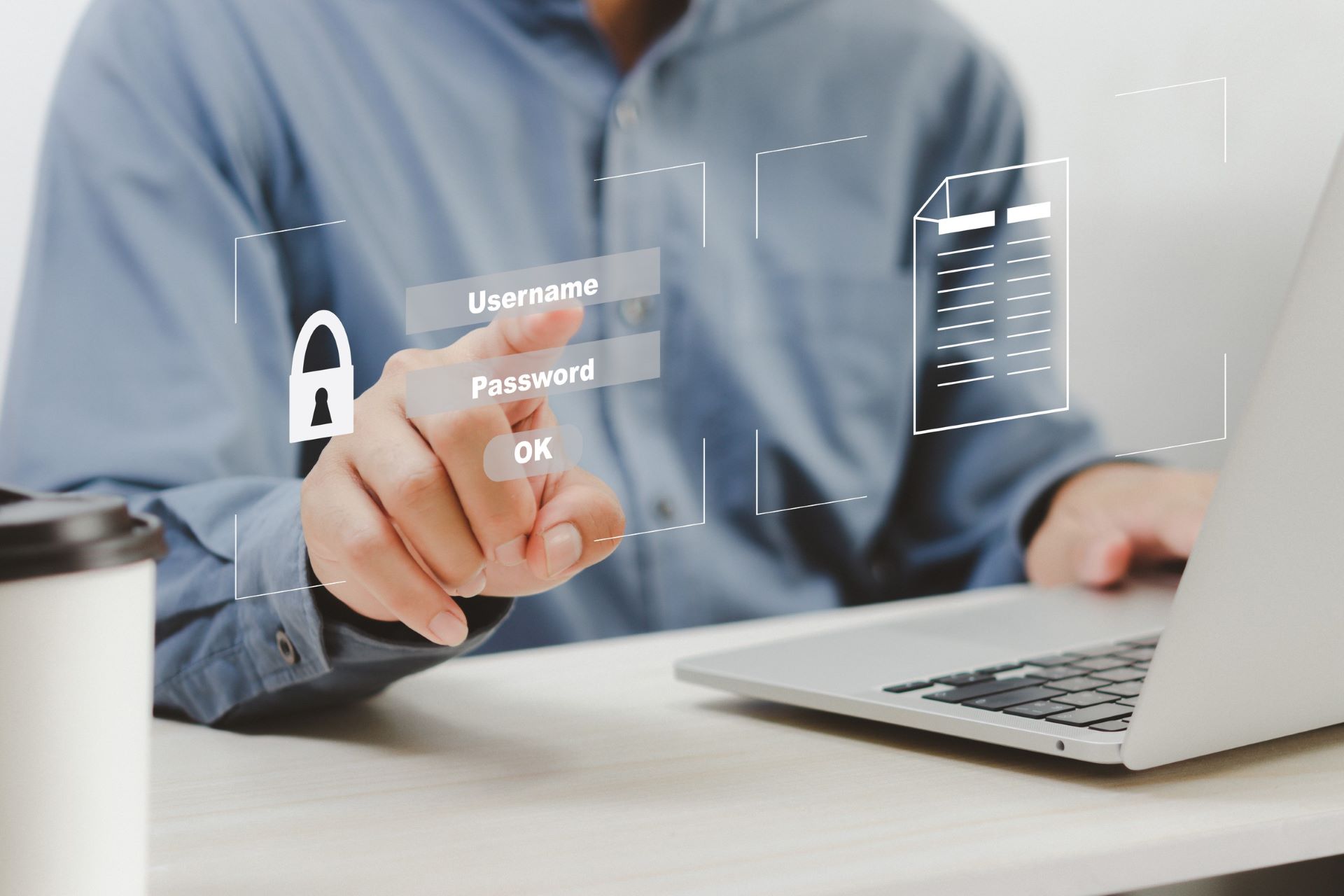
In today’s digital age, protecting ourselves from cyber threats has become more crucial than ever before. Cyberattacks in Singapore increased by 145% from 2020 to 2021, with the average cyberattack costing businesses approximately SGD$ 1.7 million per breach. But it’s not just businesses that have to watch out. As individuals, we need to be mindful of our personal information too. Cybersecurity is no longer just about protecting your devices and data, it’s about safeguarding your identity, privacy and financial security.
Whether you’re an employee or a business owner, we’ve put together the top 12 cybersecurity tips and best practices for 2023, so you can stay safe online and avoid costly data breaches.
#1 Keep Up with Software Updates
Imagine you’re typing away on the computer and a notification pops up. A software update is available. Do you:
A) Ignore it and continue working
B) Delay it and update later
C) Jump on it and update immediately
Most of us would answer A or B. One of the most important cybersecurity tips we can give you is to never ignore your software updates! This is because software updates often contain the latest security updates and patches. Behind the scenes of cybersecurity is a constant battle between hackers constantly trying to find new vulnerabilities to exploit, and developers patching security flaws in outdated software to prevent attacks.
By keeping your software updated, you’re reducing the risk of cyber attacks and protecting yourself from potential data breaches. To make it easier, try turning on automatic updates, set reminders to check for updates and download updates from trusted sources only.
#2 Use Strong and Varied Passwords
One of the most-touted cybersecurity tips is to use strong passwords, and for good reason! The password you use to log into your emails, personal and work accounts can make all the difference when it comes to your online security. Using weak or easily guessable passwords puts you at risk of being hacked, risking your personal and business information.
So what makes a strong password? A combination of upper and lower case letters, numbers, and special characters is a great place to start. Think outside the box and avoid using obvious phrases or personal information like birthdays that can be easily guessed. After all, “123456” and “password” are still some of the most commonly used passwords out there — don’t fall into that trap!
Even if you have a strong password, you should never use the same password for all your accounts. Imagine if a hacker manages to crack your email password — if you’re using the same password across multiple accounts, they now have access to all of them. Using varied passwords adds another layer of security that limits the damage should one password be compromised.
Don’t have the time to create strong and varied passwords for all your accounts? Consider using a password manager like Bitwarden or 1Password to generate random and complex passwords, and store them securely. By taking a proactive approach to password creation and management, you can protect your online safety and reduce your risk of getting hacked.
#3 Enable Two-factor Authentication
Two-factor Authentication (2FA) is an extra layer of security that requires you to provide two forms of verification in order to access your online accounts. This typically includes your password and something else like a fingerprint scan, a code sent to your phone or a security key. This makes it so that if a hacker manages to guess your password, they will still be unable to access your account without your secondary authentication.
Enabling 2FA is one of the best and easiest cybersecurity tips to practise! To do so, simply check if your app offers this feature and enable it as soon as possible. You may need to download an authenticator app like Authy or Google Authenticator, or register your mobile number to receive verification codes.
#4 Phishing: Be Way of Suspicious Emails/Links
Have you ever received an email that seemed too good to be true or clicked on a link that took you to an unexpected website? If so, you may have been the target of a phishing attack.
Phishing is a type of cyber attack where the attacker sends an email that appears to be from a legitimate source, such as a bank or a trusted company, and tries to trick the recipient into clicking on a link or entering their personal information into a fake website. These emails often contain a sense of urgency or fear to make the recipient act quickly without thinking it through.
Phishing attacks are becoming increasingly sophisticated, and it can be difficult to distinguish them from legitimate emails. That’s why it’s important to be cautious and verify the legitimacy of emails and links before clicking on them. Look out for emails that use scare tactics or seem too good to be true, and check the sender’s email address to see if it’s legitimate.
At the same time. be cautious of links that take you to unfamiliar websites, and hover over them to check the URL before clicking. Being aware of these risks and taking the time to verify the legitimacy of emails and links can go a long way in protecting your personal information and reducing your risk of becoming a victim of cybercrime.
#5 Avoid Downloading/Running Suspicious Programs
Our next cybersecurity top tip is to avoid downloading or opening suspicious programs or files. This can easily infect your computer with malware, such as viruses, trojans, and spyware. Malware can harm your computer, steal your personal information, and even allow hackers to take control of your computer. These types of attacks can be costly and time-consuming to fix.
To protect yourself, download software from trusted sources and avoid downloading from unknown sources or peer-to-peer networks. Be wary of email attachments or files from unknown sources, and avoid programs that ask for access to your personal information or request that you disable your antivirus software.
You should also protect yourself by keeping your antivirus software up-to-date and perform regular scans to detect any potential threats. Speaking of antivirus software, this brings us to cybersecurity tip #6.
#6 Use Anti-virus and Anti-malware Software
One of the most important tools in your cybersecurity arsenal is antivirus and anti-malware software. These software programs work behind the scenes to scan your computer for malicious software and protect your personal information from cyber attacks.
Antivirus and anti-malware software act as the bodyguards of your computer, constantly on the lookout for potential threats and eliminating them before they can cause harm. They provide a critical layer of protection against viruses, malware, and other malicious software that can be hidden in emails, downloads, or even social media messages.
To get the most out of your antivirus and anti-malware software, it’s important to stay vigilant and keep them updated. This means running regular scans, choosing a trusted software provider, and avoiding free software from unverified sources.
#7 Use a Virtual Private Network
One of the newer cybersecurity tips on the block is to use a Virtual Private Network (VPN). In today’s world where every website is looking to collect your data, VPNs essentially create a secure, encrypted connection between your device and the internet, protecting your online activities from prying eyes.
Using a VPN masks your IP address and location, making it much harder for hackers or unwanted websites to track you or access your personal data.
To use a VPN, you first need to sign up for a VPN service provider and download their software onto your device. Once installed, simply connect to a server of your choice to establish a secure connection. It’s important to choose a reputable VPN provider and follow best practices, such as not logging into sensitive accounts while connected to public Wi-Fi. By using a VPN, you can enjoy a much safer and more private online experience.
#8 Secure Your Wifi Network
Unsecured Wifi networks are an open invitation to cybercriminals who can easily intercept your internet traffic and steal your sensitive information. It is akin to leaving your house door and gate unlocked. That’s why one of the most important cybersecurity tips is to secure your Wifi network with a strong and unique password. This password should follow the best practices outlined in tip #2, so make sure it’s at least 12 characters long and includes a mix of upper and lowercase letters, numbers and special characters. Also avoid using common words or phrases, as these can be easily guessed by cybercriminals.
Another essential cybersecurity tip is to change your Wifi network name or SSID from the default name assigned by your internet service provider (ISP). Changing the name of your Wi-Fi network makes it harder for cybercriminals to target your network, as they often use default names to identify and target unsecured Wifi networks.
Additionally, enabling network encryption such as WPA2 or WPA3 can provide an extra layer of security. Encryption ensures that any data transmitted over your network is protected and cannot be intercepted by cybercriminals.
#9 Back Up Your Data
Whether it is crucial business information or personal albums, losing important data can be a nightmare. Data can be lost due to many reasons, from hardware failure to theft and even cyber attacks. A common tactic cybercriminals use is to exploit vulnerabilities in your system and encrypt your files, demanding a ransom to restore your access to the data.
By regularly backing up your data, whether to a physical external hard disk or to the cloud, you can ensure that you have a recent copy of your important files and recover them quickly in case of data loss.
To make it easy for you, one of the cybersecurity tips for backing up your data is to automate the process. Manual backups are often neglected due to the hassle of creating backups regularly. Therefore, automating the backup process can ensure that the backups are created without fail at a scheduled time.
#10 Limit Access to Sensitive Data
One of the biggest reasons for data leaks in organisations is human error. That’s why limiting access to sensitive data is one of the best cybersecurity practices to reduce the chances of leaks.
This means only granting access to authorised personnel and implementing security measures to prevent unauthorised access. Any data is considered sensitive and should only be accessed by authorised personnel. This includes confidential business information, personal information, financial data, and intellectual property. Once you have identified sensitive data, create a list of authorised personnel who should have access to it. Ensure that access is granted on a need-to-know basis only.
Secondly, implement security measures to restrict access to sensitive data. This includes using strong passwords, two-factor authentication, and encryption. Ensure that all employees are trained on best practices for cybersecurity and understand the importance of limiting access to sensitive data.
By limiting access to sensitive data, you are reducing the risk of a cyber attack and protecting your business from potential financial loss and reputational damage. Remember to regularly review and update your security measures to stay ahead of cyber threats.
#11 Use a Firewall
Firewalls are an essential component of a comprehensive cybersecurity plan. They act as a barrier between your computer network and the internet, allowing only authorised traffic to enter and leave your network. By filtering out malicious traffic and preventing unauthorised access, firewalls help protect your sensitive data from cybercriminals.
As cyber threats evolve and become more sophisticated, so too must your firewall. Regularly updating your firewall software and firmware ensures that it can effectively block the latest threats and vulnerabilities, helping to keep your network secure. It is also important to configure your firewall to suit your specific needs and to monitor it regularly to ensure that it is functioning properly.
#12 Train Your Employees
When it comes to Cybersecurity, 88% of data breaches are caused by human error. That’s why it is crucial for businesses to provide effective cybersecurity training for staff to prevent such mistakes from happening. Without proper training, employees may unwittingly put your company’s sensitive information at risk, either by falling for phishing scams, downloading malicious software or simply using weak passwords.
Effective cybersecurity training includes educating employees on the latest cybersecurity threats and tactics, such as phishing and social engineering, as well as providing them with practical tips for securing their work devices and accounts. By investing in cybersecurity training, you can help ensure that your employees are equipped to handle the latest threats and can help keep your company’s data safe and secure.
Learn Cybersecurity Risk Management with FirstCom Academy
Cybersecurity is a crucial aspect of any business or individual’s online presence that cannot be taken lightly. For businesses, cyber attacks can have devastating and long-lasting effects on a company’s reputation and finances. For individuals, cyber attacks can cause stress and anxiety as well as the potential loss of important files. Explore more cybersecurity tips to help you improve and strengthen online privacy and security. By being proactive and following the cybersecurity tips outlined in this article, you can significantly reduce the risk of falling victim to a cyber attack!
But it doesn’t stop there. In today’s digital age, it’s not a matter of if a cyber attack will occur, but when. To ensure that your employees are adequately trained to identify and respond to cyber threats, consider enrolling them in a cybersecurity course like the one offered by FirstCom Academy. With Singapore experiencing a surge in cyber attacks, investing in cybersecurity training is more important than ever. The course will equip your employees with the necessary knowledge and skills to protect sensitive data, maintain customer trust, and keep your business secure.
Read more:
- Top 8 Major Cyber Attacks in Singapore
- Top 10 Most Common Types of Cyber Scams in Singapore
- Cybersecurity: 10 Major Data Breaches in Singapore News
- Top 10 Types of Cyber Attacks in Singapore and How You Can Prevent It


